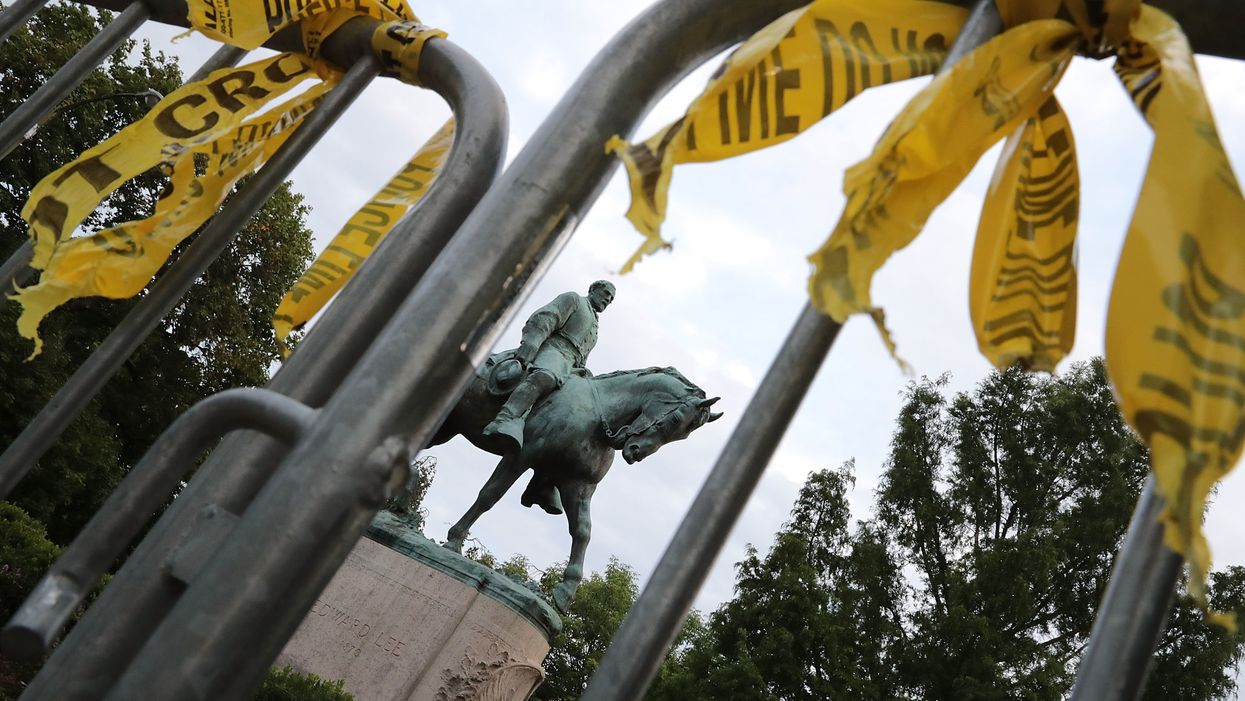Virginia is about to eliminate a holiday honoring the state's two most famous Confederate generals, Robert E. Lee and Stonewall Jackson, and replace it by making Election Day a statewide holiday.
With the state government under entirely Democratic control for the first time in a quarter-century, the symbolically rich switch is part of an array of measures advancing through Richmond that are designed to make it easier to vote — including a first-in-the nation legislative repeal of a photo ID mandate.
Virginia would join eight other states that give all their workers a paid day off for voting in presidential and midterm election years — a move that prompts many businesses, schools and local governments to declare a similar holiday for their employees.
The House of Delegates passed the holiday legislation 55-42 on Thursday, sending the proposal to the Senate, which voted 22-18 for a similar bill last month. Gov. Ralph Northam has said he favors the idea.
The General Assembly designated a holiday to honor the birthday of Lee, commanding general of the Confederate Army, in 1890. Fourteen years later Jackson was added to the holiday.
When the Martin Luther King Jr. federal holiday was created in 1983, the state decided to combine it with its Lee-Jackson holiday. But after objections to the idea of linking two generals who fought to defend slavery to the civil rights icon, the two holidays were separated. The generals' day is now observed the Friday before the King holiday.
Last year, Democrats in Congress proposed democracy reform legislation that originally included making Election Day a federal holiday, but t hat provision was quietly stripped from the final bill that passed the House.
In recent years, a movement to remove monuments and flags that honor the Confederacy has gained momentum. Proponents note that many of the monuments were put in place around the turn of the 19th century, long after the Civil War ended and during the height of the Jim Crow era. They say the memorials were an attempt to enforce white supremacy.
Another democracy-related element of the 11-point Virginia 2020 Plan that Northam and Democratic state legislative leaders unveiled in January calls for removing the requirement that people using absentee ballots provide a reason why they need to vote early. Senators have already voted to do so.
The Senate also voted this week for a bill to get rid of the requirement that voters show a photo ID. Such a measure is already through a House committee.
One other reform issue that remains unresolved is whether Virginia will change the way it draws its legislative and congressional boundaries every decade. Last year, the General Assembly approved placing a constitutional amendment on the ballot that would create an independent redistricting commission to draw the lines instead of lawmakers.
For that to happen in November, in time for the post-census map-making for the 2020s, legislators must vote for the idea a second time before recessing a month from now.
Some black Democrats in Richmond have objected to the proposed ballot measure, which says if the commission can't agree on a map then the work would be handed to the state Supreme Court, which has a majority of justices appointed by GOP governors. Republicans are accusing Democrats of hypocrisy for getting cold feet about changing the current system now that they have benefitted from it with their new majorities.




















Trump & Hegseth gave Mark Kelly a huge 2028 gift